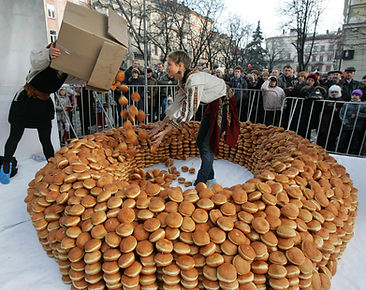
LVIV THE HISTORICAL CITY
Lviv is an extremely attractive tourist area of Ukraine. It is a city of magnificent architectural landmarks: impressive temples and ancient squares, cozy narrow streets, museums and galleries housing artistic masterpieces of different historical epochs.
Carefully preserving the historical heritage, citizens of Lviv always try to demonstrate their keeping-with-the-times. It was in Lviv where traditional celebration of the holidays has received the new format of various themed festivals.
This Unesco World Heritage Site is the country’s least Soviet and exudes the same authentic Central European charm as pre-tourism Prague or Kraków once did. Its quaint cobbles, bean-perfumed coffeehouses and rattling trams are a continent away from the post-Soviet badlands to the east. It’s also a place where the candle of Ukrainian national identity burns brightest and where Russian is definitely a minority language.
But the secret is out about Lviv, and those who foresaw a decade ago that the city would become Ukraine’s premier tourist attraction are watching their prediction come true. No other place in the country is more geared up for visitors and no other attracts so many of them. The Euro 2012 football championships gave the world a taste of this Ukrainian treat; a successful bid for the 2022 Winter Olympics would be the icing on the cake.
Lviv is on the map and regardless of what the rest of the country may be doing, it has its sights set firmly on the visitor experience.
The city has the best range of hotels in the country; hostels, tour agencies, guides and English-language information abound; and local restaurateurs have been letting their imaginations run amok, producing one of Eastern Europe’s wackiest list of places to eat.
So forget Ukraine's capital of humour, Odesa – you're bound to find infinitely more smiles here in forward-looking Lviv.
 |
|---|
 |
 |
 |
 |
 |
 |
 |
 |
 |
 |
 |
 |
 |
 |
 |
 |
 |
 |
 |
 |
 |
 |
 |
 |
 |
 |
 |
 |
 |
 |
 |
 |
 |
 |






